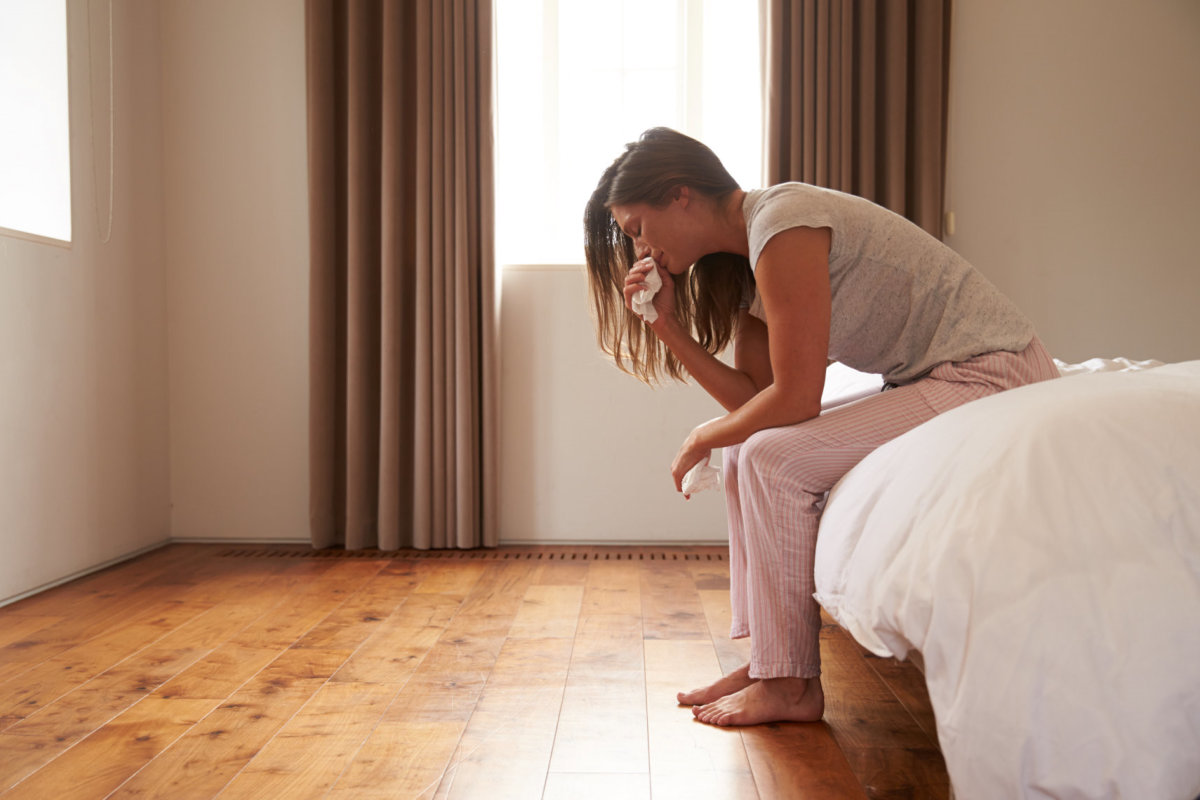Mental Health
Last updated: December 2021
Home > Information & Support > Adults >
There’s a close relationship between sleep and mental health. Lack of sleep can affect mental health, but mental health problems can also affect how well you sleep – both the quantity and the quality of it – so it’s extremely important to address both issues. Any health professional will always enquire about both mood and sleep behaviour when making any kind of diagnosis.
Sleep deprivation has a negative effect on physical and emotional ability. Sleep has an important restorative function in ‘recharging’ the brain at the end of each day but also giving us the ability to manage and cope. Keeping a regular sleep-wake pattern allows the natural rhythm of the body to be reset every day and therefore optimises brain functioning.
4 in 5 long term poor sleepers suffer from low mood and are seven times more likely to feel helpless and five times more likely to feel alone.
Ongoing poor sleep can be a huge risk factor for the development of major depressive disorder. The risk of feeling depressed and/or anxious (as well as worsening existing anxiety and depression) increases with the severity of insomnia, and so it is important to recognise and sort out sleep problems as soon as they are identified.
Symptoms of sleep deprivation include:
- Low mood
- Anxiety
- Irritability
- Erractic behaviour
- Impaired concentration and memory loss
- Tiredness
- High blood pressure
How can mental health problems affect sleep?
According to Mind, there are number of ways a mental health problem can affect your sleep.
- Anxiety can cause thoughts to race through your mind, making it difficult to sleep.
- Depression and seasonal affective disorder (SAD) can lead to oversleeping – either sleeping late in the morning or sleeping a lot during the day. If you experience difficult or troubling thoughts as part of depression, this can also cause insomnia.
- Post-traumatic stress disorder (PTSD) can cause nightmares and night terrors, disturbing your sleep. This can mean you feel anxious about falling asleep, which could lead to insomnia.
- Paranoia and psychosis may make it difficult for you to sleep. You may hear voices or see things that you find frightening, or experience disturbing thoughts, which make it hard to fall asleep.
- Mania often causes feelings of energy and elation, so you might not feel tired or want to sleep. Racing thoughts caused by mania can make it hard to fall asleep and may cause insomnia.
- Psychiatric medication can cause side effects including insomnia, disturbed sleep or oversleeping. You may also experience sleep problems after you stop taking psychiatric drugs.
Poor sleep quality also affects mood, so if you spot a change in an employee, a friend or family member’s behaviour and attitude then try talking to them. These changes in mood can be minor or they may be a more serious mental health issue and it’s important to be conscious of this.
Those who don’t sleep well because of health issues often look to medication and drinking alcohol to try and get a better night’s sleep – not the best solutions. Many also turn to more natural, alternative or self-help solutions – from meditation and homeopathy to sleep advice lines and sleep clinics to cognitive behavioural therapy courses. Often people neglect the obvious basics such as a good sleep-orientated environment, a comfortable bed and proper bedtime wind down routines.
It can also help for people to write down what’s worrying them or talk through their issues with someone – unburdening thoughts can lift a huge weight off someone’s shoulders. Advice on ways to relax is also useful – meditation is a great tool for relaxing body and mind.
Exercise (but not too close to bedtime) can also aid better quality sleep and lower body temperature which also induces sleep. It improves heart health and blood pressure; builds and strengthens bone and muscle; helps combat stress; helps improve mood; and it helps you look and feel better.
If you are experiencing frequent problems with sleeping, please make an appointment to see your GP.
For more information visit the charity, Mind www.mind.org.uk
Stay in touch
Sign up to our mailing list to keep in touch with our latest news, events and developments as well as regular sleep advice and how you can get involved with us on our awareness campaigns. We will never share your data with anyone else.
